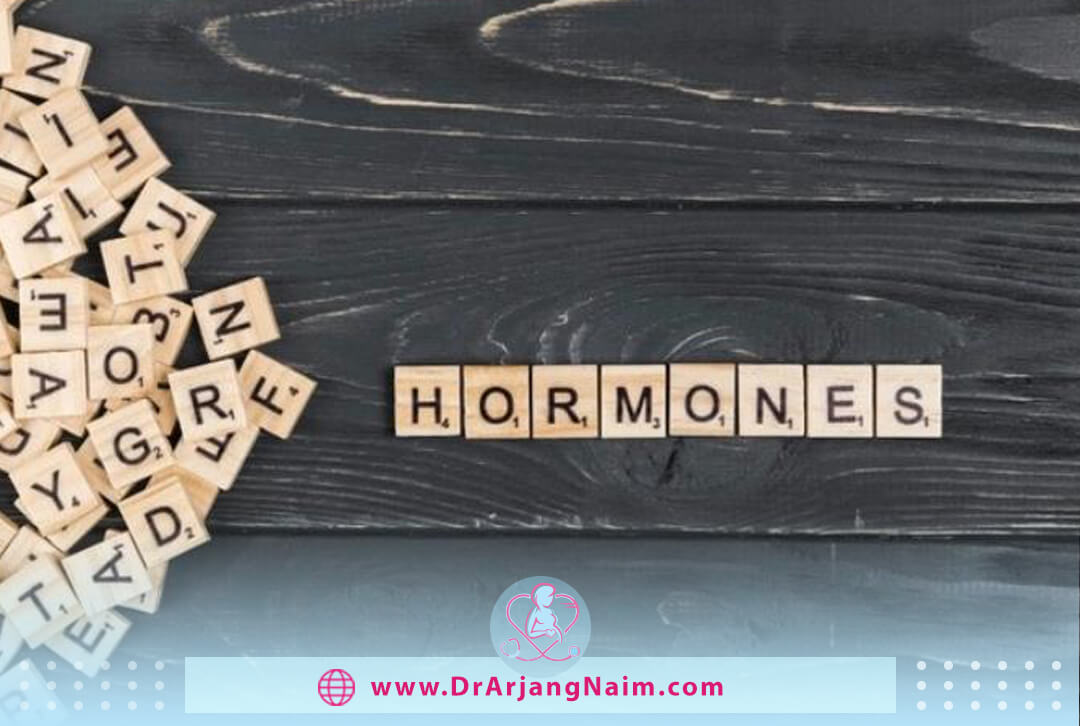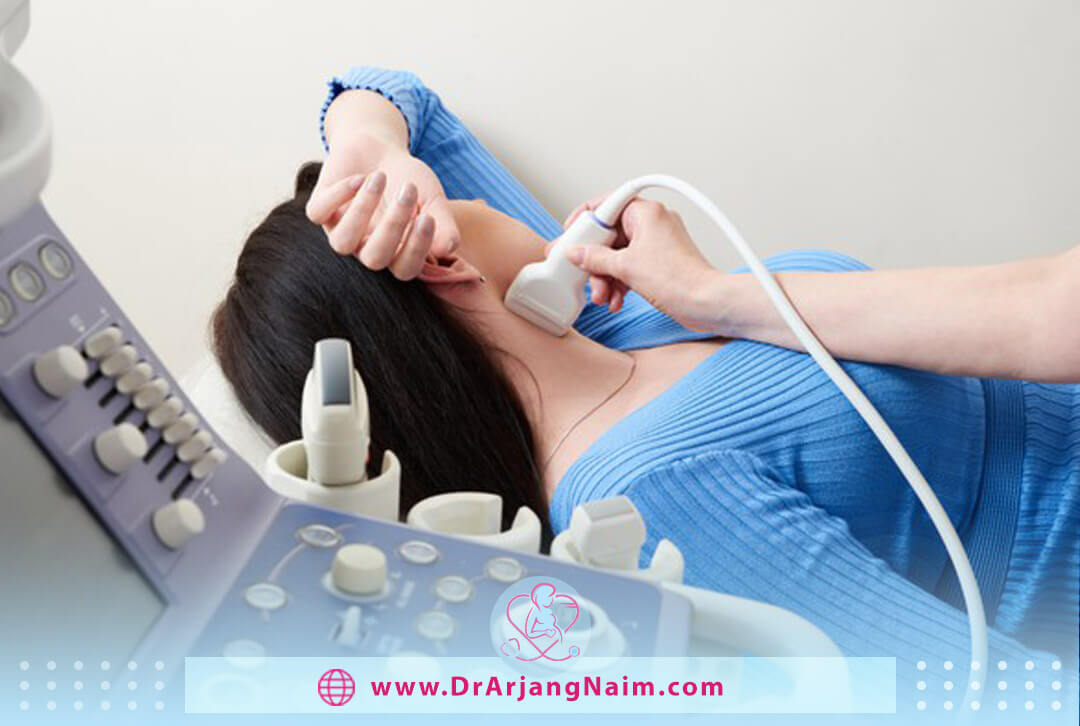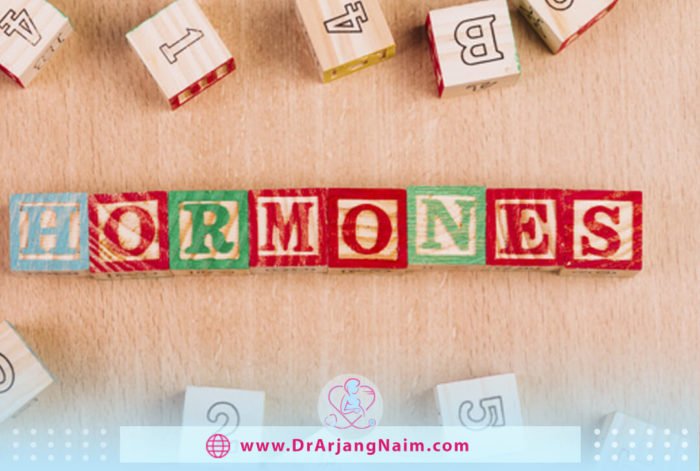Hormonal imbalances in the body can cause various physical and mental effects. Hormones are the body’s chemical messengers. These powerful chemicals, which are produced in the endocrine glands, are released into the bloodstream and tell tissues and organs what to do.
Hormones regulate many body processes, including appetite, metabolism, sleep cycles, reproductive and sexual function cycles, body temperature, and mood. So, it is not surprising that even the slightest balance can significantly impact health.
Hormone levels fluctuate naturally at different stages of life, most notably during puberty, menstruation, pregnancy, and menopause. They can also be affected by lifestyle and some medical conditions. What is important is to pay attention to the symptoms of hormonal imbalance and see a specialist for diagnosis and treatment.
14 signs and symptoms of hormonal imbalances

Hormones play an essential role in the overall health of the body. As a result, a wide range of signs or symptoms can indicate a hormonal imbalance. Signs or symptoms depend on the function of hormones or glands.
1. Fatigue
Everyone feels fatigued sometimes, but they need to recover with adequate rest, hydration, and a healthy diet. If there is still a feeling of tiredness with self-care, a comprehensive assessment of hormone levels can determine the cause. Excess progesterone causes drowsiness, and if the butterfly-shaped thyroid gland produces a small amount of thyroid hormone in the neck, it can reduce energy.
2. Anxiety
Approximately 18% of the American adult population suffers from an anxiety-related disorder, and women are twice as likely to have a mood disorder. Women may be at higher risk because changes in estrogen during menstruation, pregnancy, or menopause are associated with worsening depression.
A study of the effects of estrogen receptors on the brain found that estrogen calms the fear and anxiety response in humans. Some of the hormonal changes that can cause anxiety include estrogen dominance, pregnancy, and thyroid dysfunction.
3. Weight gain
Hormonal imbalances can lead to weight gain. If your body has high cortisol and insulin hormones, you will eat more, and this overeating will cause you to gain weight. Remember that being overweight can lead to the production of high levels of sex hormones such as estrogen and testosterone, and this imbalance in hormones, especially after menopause, can lead to weight gain. Estrogen deficiency can affect the level of leptin that, which helps regulate nutrients in the body and cause a person to gain weight.
4. Trouble sleeping
Insomnia can be linked to a dysregulated hypothalamic pituitary adrenal (HPA) axis, the central stress response sys, Where the endocrine and central nervous systems interact. It also regulates the sleep-wake cycle through the secretion of hormones such as melatonin and cortisol. Melatonin works in the part of the brain that controls our circadian rhythm, allowing us to fall asleep faster and longer. The inability to secrete melatonin may lead to difficulty sleeping or adapting to a new sleep pattern. Likewise, the sleep cycle may be disrupted when cortisol levels are too high.
5. Digestive issues
There are more neurotransmitters in the gut than in the brain, so it is not surprising that hormonal imbalances, anxiety, and depression are sometimes accompanied by gastrointestinal symptoms. Hormones affect intestinal function through the microbiome and bacterial system in our gut, so hormone imbalances can affect the number and function of gut bacteria and lead to symptoms such as bloating, constipation, diarrhea, or nausea.
6. Acne
A sudden increase in acne is one of the easiest ways to detect hormonal imbalances. One of the few hormones involved is androgens. Androgens are commonly called male hormones but are found in both men and women to regulate skin sebum production. If the body produces too much androgen, sebum can build up in the pores of the skin and cause pimples.
7. Hair loss
Hair quality and freshness are also directly related to hormones. For example, thyroid abnormalities may cause dry hair or skin, thinning hair, or brittle nails. Hypothyroidism, hyperthyroidism, and parathyroid disorder can also cause hair loss.
8. Loss of Libido
In men and women, decreased testosterone, estrogen, and progesterone are associated with decreased libido. This is especially true after age 50 when estrogen and testosterone production is reduced. Because estrogen is one of the major hormones that regulate a woman’s menstrual cycle, decreased production can lead to irregular menstruation.
9. Memory Fog
Changes in estrogen and progesterone can make the head feel foggy and make things harder to remember. Some experts think estrogen may affect brain chemicals called neurotransmitters. Attention and memory problems, especially during menopause and perimenopause. They can also be a sign of other hormone-related illnesses, such as thyroid disease.
10. Headaches
Headaches usually occur before or during menstruation, when estrogen is low. Regular headaches, or those that often happen at a specific time each month, can be a sign of a change in hormone levels.
11. Vaginal Dryness
Vaginal dryness is normal at times, but if you have an irritated or dry vagina most of the time, it can be a sign of estrogen deficiency. Estrogen helps keep vaginal tissue moist. If estrogen is reduced due to an imbalance, it can reduce vaginal fluid.
Vaginal dryness is often caused by low estrogen levels, especially during menopause or perimenopause. Taking birth control pills or antidepressants can also change hormone levels and lead to problems.
12. Breast Changes
Decreased estrogen can make breast tissue less dense, and increased hormones can cause the tissue to thicken and even form new masses or cysts.
13. Changes in blood pressure
Hormones play a significant role in heart health, mainly due to one of the largest hormone-producing glands in the body called the pancreas. The pancreas is responsible for producing insulin, which regulates blood glucose levels. Without proper regulation of this hormone, blood glucose levels rise. Improper regulation of blood glucose leads to cardiovascular problems such as high cholesterol or high blood pressure. Hypertension is also associated with thyroid dysfunction, testosterone deficiency, changes in growth hormone, and more.
14. Fertility problems
Hormonal imbalance is one of the main causes of female infertility, and with changes in hormone levels, women’s fertility naturally decreases after age 35. High levels of follicle-stimulating hormone (FSH) and low levels of luteinizing hormone (LH) can cause fertility problems. Premature menopause and other hormone-related conditions, such as PCOS, also affect fertility.
Causes of hormonal imbalances in women

Some of the causes of hormonal imbalance in women are normal. Hormones fluctuate throughout the menstrual cycle, which can lead to symptoms such as bloating or insomnia. Pregnancy, breastfeeding, and menopause also affect hormones. The most important reasons for hormonal imbalance include:
- Thyroid problems: An overactive or underactive thyroid causes an imbalance in the body’s thyroid hormone level. These problems may result from an autoimmune disease, medication, tumors, and other conditions.
- Stress: Stress causes the body to produce cortisol. Too much cortisol can lead to Cushing’s syndrome. Prolonged stress exposes the body to high cortisol levels for a long time and can affect the levels of other hormones in the body.
- Eating disorders: eating disorders, such as anorexia nervosa, can affect hormone levels, leading to decreased estrogen, decreased bone density, and other problems.
- Birth control: Some types of contraception contain hormones that affect the body’s hormones. They can cause missed periods, irregular menstruation, heavy bleeding, weight gain, digestive problems, and more. Getting out of hormonal pregnancy control may also temporarily affect normal hormone levels because they balance themselves.
Diagnosis
The doctor may recommend one or more diagnostic tests depending on the symptoms.
Blood test
The doctor sends a blood sample to the lab for testing. Most hormones are detectable in the blood. So a doctor can do blood tests to check thyroid, estrogen, testosterone, and cortisol levels.
Pelvic exam
The doctor may perform a Pap smear to look for an unusual mass, cyst, or tumor.
Ultrasound
Ultrasound uses sound waves to see inside the body. For example, doctors may order an ultrasound to take pictures of the uterus, ovaries, testicles, thyroid, or pituitary gland.
Additional tests
Sometimes more advanced tests are needed to diagnose. These tests include:
- Biopsy
- MRI
- X-ray
- Thyroid scan
Treatment
Treatment of hormonal imbalance depends on the cause. Therefore, each person may need different types of treatment for hormonal imbalances.
Estrogen therapy
If there is hot flashes or other unpleasant symptoms of menopause, your doctor may recommend a low dose of estrogen. Also, be sure to talk to your doctor about the risks and benefits of hormone replacement therapy (HRT).
Vaginal estrogen
If you have vaginal dryness or pain during sex, you may want to use an estrogen cream, pill, or ring.
Hormonal birth control
Hormonal birth control can help regulate the menstrual cycle. Types of hormonal contraceptives include:
- Birth control pill
- Birth control patch
- Birth control shot
- Vaginal ring
- Intrauterine device (IUD)
Anti-androgen medications
Androgens are male sex hormones found in both men and women. Women with high androgen levels may choose a drug that blocks the effects of androgens. These effects include:
- Hair loss
- Facial hair growth
- Acne
Thyroid hormone therapy
In the presence of hypothyroidism, the synthetic thyroid hormone levothyroxine can balance hormone levels.
Natural remedies and supplements

Many people have used natural supplements to treat hormonal imbalances. However, no natural cure has been consistently proven in clinical trials to treat hormonal imbalance and its causes, other than lifestyle changes. Lifestyle changes that can be made include:
- Lose weight: A 10% weight loss in women may help regulate menstruation and increase the chance of pregnancy.
- Eat well: A balanced diet is important to the body’s overall health.
- Decrease vaginal discomfort: Use moisturizers or lubes free of parabens, glycerin, and petroleum.
- Avoid hot flashes: Identify items that usually provoke hot flashes, such as hot temperatures, spicy foods, or hot drinks.
- Exercising regularly
- Reducing and managing stress
- Regular and quality sleep
The bottom line
Hormones are responsible for many of the body’s major processes. When hormones are out of balance, the symptoms can be very varied. Almost everyone experiences at least one or two periods of hormonal imbalance in their lifetime. Hormonal imbalances are more common during puberty, menstruation, and pregnancy. But some people experience persistent and irregular hormonal imbalances.
Many hormonal imbalances are caused by external factors such as stress or hormonal medications. However, hormonal imbalances can also be caused by any medical condition that affects the endocrine system.
If you have symptoms of a hormonal imbalance, you should talk to your doctor about long-term unexplained symptoms, especially those that cause pain, discomfort, or interference with daily activities. In addition, hormonal imbalances can cause a variety of side effects, so it is important to seek treatment as soon as possible.
If you have symptoms of hormonal imbalance, Dr. Arjang Naim, MD can identify the cause by performing detailed tests and offering the best treatment based on the patient’s condition.
Additional questions
- What does leptin do in the body?
Circulating leptin levels act as a gauge for energy stores and direct the central nervous system to regulate food intake and energy expenditure accordingly. Leptin has immediate effects by influencing the brain to regulate appetite.
- What is sebum?
Sebum is an oily and waxy substance produced by the body’s sebaceous glands. It covers, moisturizes and protects the skin.
- What is Cushing’s syndrome?
Cushing’s syndrome is a disorder that occurs when the body produces too much of the hormone cortisol over a long period of time. Cortisol is also called the stress hormone because it helps the body respond to stress.
- What are the best vitamins for hormonal imbalance?
- Vitamin D
- Vitamin C
- B Vitamins
- Omega-3
- What does a thyroid scan tell you?
A thyroid scan is a nuclear medicine exam that uses gamma-ray emissions from radioactive iodine to help determine if a patient has thyroid problems, including hyperthyroidism, cancer, or other growths.
References
https://www.forbes.com/health/family/hormone-imbalance-symptoms/
https://my.clevelandclinic.org/health/diseases/22673-hormonal-imbalance
https://www.healthline.com/health/hormonal-imbalance
https://www.webmd.com/women/ss/slideshow-hormone-imbalance
https://www.medicalnewstoday.com/articles/321486




